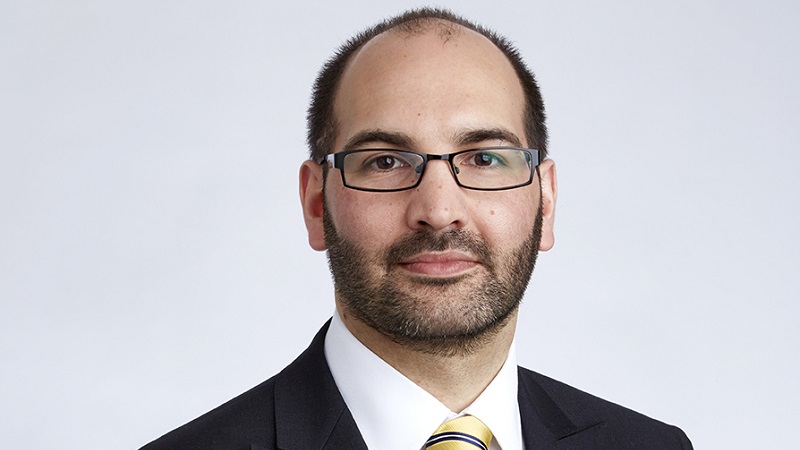ESG exchange traded funds are enjoying a record year, according to a report from Lyxor ETF, with inflows in May hitting €2.4bn (£2.2bn) despite difficult market conditions.
Lyxor ETF’s latest Money Monitor report shows that equity ESG ETFs were particularly successful in May as risk assets were buoyed by stimulus measures across the world. They gathered €1.6bn of inflows, while bond products took in the remaining €800m. So far in 2020, ESG ETFs have gathered €10.6bn in inflows, even as many other parts of the market have been hit by redemptions.
Vincent Denoiseux, head of ETF research and solutions at Lyxor ETF, said: “The health crisis has certain similarities with climate issues, including the fact that for too long we have ignored how dependent our economic and social systems are on natural factors. In this context, net inflows into the European ESG ETFs market have remained positive since the start of the year and they were approaching €10.6bn by late May.”
Outperformance on pandemic
This year, ESG investments in general have enjoyed strong demand, not least because ESG funds have performed better than traditional funds during the Covid-19 pandemic.
This largely can be attributed to these funds avoiding such sectors as oil and gas, which have been hit the hardest, and overweighting such areas as technology and healthcare, which have performed relatively well.
But a recent report from Morningstar, How Does European Sustainable Funds’ Performance Measure Up?, shows that a majority of sustainable open-ended funds and ETFs have in fact outperformed traditional funds over multiple time horizons, not just over the short term.
Denoiseux said: “Historic performances were already demonstrating that ESG strategies are long-term winners. The present crisis illustrates that they also tend to be resilient in the short term: our European equity ESG strategies outperformed by between 1.8% and 2.8% in March.”
Ben Seager-Scott (pictured), head of multi-asset funds at Tilney Group, added with these stats as well as more investors looking to invest responsibly, flows will continue. “ESG has seen an acceleration of interest this year, and the Covid-19 pandemic has acted as something of a catalyst. I think the trend will continue, if only because this is a major long-term theme as more investors seek to align their investments with their own values.”
For ESG ETFs in particular, this level of growth is just the beginning, according to Linda Zhang, founder and CEO of Purview Investments.
“The assets under management in this space is just around $30bn [in the US], according to our ESG ETF database,” she said.
“Despite 60% growth in AUM year-to-date, ESG investing via ETFs is just in its infancy, compared to nearly $4trn assets in the total US ETF industry.”
This sentiment was echoed by Lyxor’s Denoiseux; “Even though the inflows into ESG ETFs have held up well, assets under management in this segment are still low, in the region of 4% of the total ETF market. But we believe that this proportion is bound to grow significantly. We are therefore expecting major movements of capital, and all the more so as new investment vehicles are coming onto the market, especially in the field of ecological and energy transition.”
‘A little caution’
However, Seager-Scott called for “a little caution” when investing in ESG strategies, or at least some “expectation management”.
“During the Covid-19 crisis, most ethical mandates have had something of a tailwind, given their inherent avoidance of many of the oil & gas producers, energy-intensive industry and other areas that have been hit the hardest,” he said.
“I would caution against extrapolating this short-term outperformance into suggesting ESG mandates are inherently better returning investments – the reality is likely to be more mixed.”
Another concern with investing in ESG ETFs is greenwash, which can be harder to avoid when an active manager is not involved.
Diane Sobin, senior portfolio manager at Tradition Asset Management, said: “Whether we are concerned with greenwashing or risks of industry concentrations like technology, active management is the solution.
“Thoughtful and fundamental analysis and actively selecting investments, versus a quantitative screen, should help avoid greenwashing.”
However, Zhang does not believe ESG ETFs are guilty of greenwash. “In the ETF space, the leading ESG products are tracking indices by well-respected ESG research and index firms,” she said. “These index firms have large research teams, standards and frameworks to conduct ESG research.”
The real issue, she said, is to what degree the ESG standards employed by these ETFs are in line with an individual investor’s expectations. “For example, some of these products might still invest in highly polluting coal and mining firms,” she added.
Data from ETF analysis platform TrackInsight shows there are 264 ETFs globally with an ESG focus and 218 of them have between 1% and 39% in fossil fuels.










